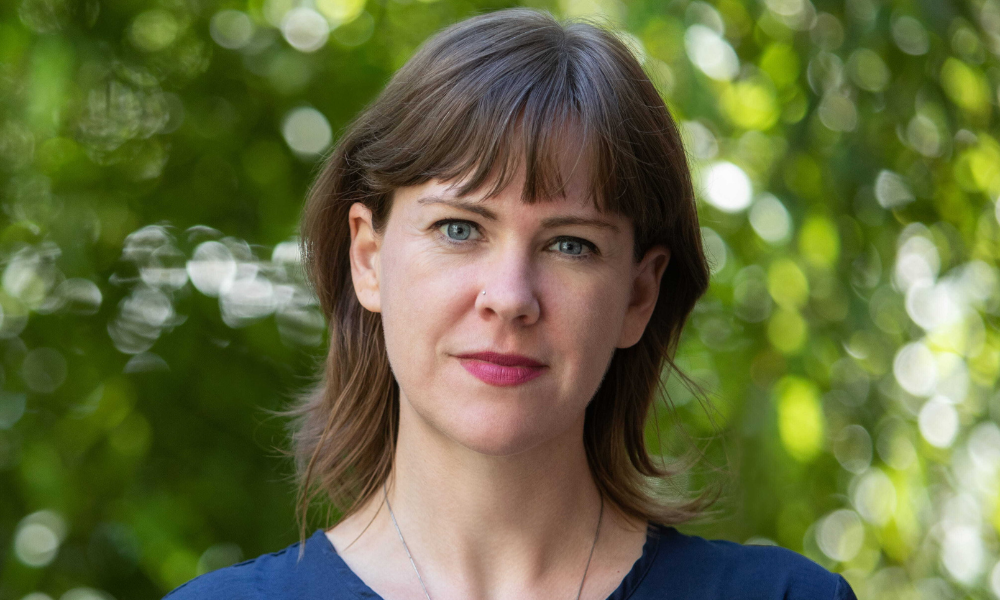'For many Indigenous people, national parks are synonymous with colonization:' Kate Gunn

Parks Canada is working with Indigenous partners on five measures within the federal action plan to apply the United Nations Declaration on the Rights of Indigenous Peoples (UNDRIP).
The federal UN Declaration Act came into force in June 2021. Its action plan includes 181 measures for the implementation of UNDRIP. According to Parks Canada, its five measures concern the recognition and promotion of Indigenous stewardship over “lands, water and ice within their traditional territories, treaty lands and ancestral homelands.” These action plan measures address “harvesting by Indigenous Peoples, governance, cultural continuity, Indigenous knowledge, apologies, and acknowledgement.”
There are 29 “Parks Canada protected heritage places” managed through shared governance arrangements with Indigenous partners, says Megan Hope, a spokesperson for Parks Canada. These arrangements are based on agreements Parks Canada has made with Indigenous governments since the 1970s, as well as treaty implementation and “evolving local relationships,” she says. The shared governance models include advisory circles and consensus-based cooperative management boards.
“In some cases, shared governance approaches rely heavily on Indigenous systems of law and governance,” she says. “As Parks Canada continues to negotiate agreements for the recognition and implementation of rights and broadens the range of options for governance with Indigenous partners, we anticipate the number and diversity of shared governance arrangements will expand, and more arrangements will support legal pluralism.”
For many Indigenous people, national parks and colonization go hand-in-hand, says Kate Gunn, a partner at First Peoples Law LLP and adjunct professor at the Peter A. Allard School of Law at the University of British Columbia.
Gunn says that national parks have long represented an ideal of “the untouched wilderness” and the importance of its protection and conservation. “One of the serious problems with that is it rests on and perpetuates a lot of the racist and outdated legal fictions that colonization relies on, like terra nullius and the doctrine of discovery.”
“The other piece is that in many cases, Indigenous peoples were physically dispossessed from their homes and their lands that were designated as parks, and in a lot of cases, continue to face restrictions on exercising their rights within those parks, including based on conservation reasons,” she says.
Parks Canada said that its decades-long relationships with Indigenous partners and more recent engagement with Indigenous communities, organizations, and governments have revealed the priorities which form the basis of its five action plan measures. The department said it will work with Indigenous partners to build tools for the measures’ execution, and the development and implementation of new policies and programs will align with “place-based approaches that are respectful of specific Indigenous systems of knowledge, governance and law, Indigenous cultures and relationships, as well as local Parks Canada contexts.”
The federal government and Indigenous governments are wrestling with the question of how to implement Indigenous laws and foster cooperative management and governance, says Gunn. She has First Nation and Indigenous group clients across Canada who are considering how to revitalize and implement their jurisdiction in lands designated as parks.
She says that legislative and policy reform enabling Parks Canada to enter consent-based agreements with Indigenous peoples based on their inherent lawmaking authority would be useful.
“There are also good reasons why changes can be made on an immediate basis without waiting for legislative reform.”
The Supreme Court of Canada has affirmed that UNDRIP’s principles – including the right to free, prior, and informed consent and the right to self-determination – have effect and that Canadian law should be interpreted in a manner that aligns with those principles.
“The Supreme Court also confirmed that if governments are making decisions that affect Indigenous peoples, the preferred avenue is to seek consent,” says Gunn. “In our view, in addition to the role that regulatory reform can play, there's also a basis to say that on existing legislation, federal entities can and should interpret that legislation in a way that requires them to seek consent and to enter into consent-based agreements with Indigenous governments.”
She says it is also essential that Parks Canada’s changes are led with internal and public recognition of the “significant role” parks have played in colonization and the dispossession of Indigenous peoples. Gunn says Parks Canada should also recognize that Indigenous people’s lawmaking authority exists as an independent source of law and is not something that can only be enforced and operationalized with federal or provincial support. “Indigenous peoples’ laws survived colonization and continue to exist,” she says.
Hope says that Parks Canada’s initiative under the UNDRIP action plan is being advanced in recognition of the impact colonial policies used to protect park space have had on Indigenous peoples.
“The creation of the first national parks disconnected Indigenous peoples from the land. This was not just a geographical disconnection, but a total disconnection from a foundational element of cultural identity,” she says. “Moving forward, Parks Canada is undertaking work through the Action Plan measures through consultation, cooperation and co-development. This work is supported by the Indigenous Stewardship Circle, a diverse group of Indigenous leaders providing advice on how Parks Canada can support the implementation of the UN Declaration.”
“Parks Canada will continue to collaborate with Indigenous partners on place-based approaches that are respectful of specific Indigenous systems of knowledge, governance and law, Indigenous cultures and relationships, and local Parks Canada contexts.”










